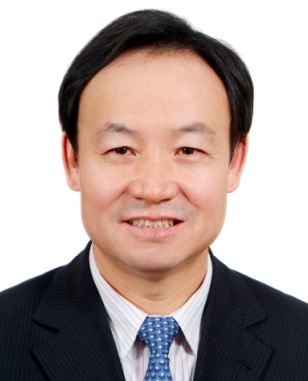Zhang Junting

Resume of Zhang Junting
Director of the Department of Neurosurgery, Tian Tan Hosipital; Professor, Chief Attending Surgeon, PHD/MD/Maser Mentor
Summary
Zhang graduated in 1977, and then followed the Professor Wang Zhongcheng in the field of neurosurgery. He has great contribution to the neurosurgery, especially in the area of skull base and brain stem tumors. He and his team are among the first pioneers of the basic and clinical research in the area of skull base and brain stem tumors in China. He initiated the first stand treatment in the field of skull base and brain stem tumors, making great improvement of diagnosis and treatment of these tumors.
As one of the most experienced specialists in the world in neurosurgery, he had performed more than 1 000 cases of brain steam tumors and 500 cases of petroclival meningiomas, and in recent 10 years he has performed more than 400 cases of mrico-neurosurgeries yearly, both the quality and quantity being advanced in the world neurosurgery.
Now Zhang leads his team working with the Beijing Neurosurgery Institute, radiotherapy centers and neuroimaging centers, has made the first step to setting up the comprehensive therapy of metastatic brain tumors, as well as the basic and clinical research.
Being a master in the field of neurosurgery, Zhang has earned his name both in education and the development of neurosurgery. Under his direction, 21 students had graduated from the Master’s or Doctor’s degree, and more young fellows have been growing up to advanced neurosurgeries. Zhang took the lead as the Chairman of the Skull Base Tumors, Branch of Neurosurgery, Chinese Medical Association (CMA), et.al. Also, Zhang has participated as a member of editor board in several important academic magazines, such as Chinese Journal of Neurosurgery, Chinese Journal of Surgery, et.al.
Professional positions
1) Vice President, Chinese Neurosurgical Society
2) Standing Committee Member, 6th Chinese Society of Neurosurgery, Chinese Medical Association
3) Committee member, 3rd Neurosurgery subspecialty committee, Chinese Medical Doctor Association; Vice Chairman, Professional Expert Committee of skull base surgery, Chinese Medical Doctor Association
4) Chairman, Neurosurgery Professional Committee of Beijing Branch, Chinese Medical Association.
5) Member, Beijing Committee of the Chinese People's Political Consultative Conference
6) Committee member, Beijing Neurosurgery Expert Committee
7) Member of Judging Panel, Chinese Medical Science Prize
8) Member of Judging Panel, Beijing Capital Medical Developmental Foundation
9) Member of Editorial Board, Chinese Journal of Neurosurgery
10) Member of Editorial Board, Chinese Journal of Minimally Invasive Neurosurgery
11)Member of Editorial Board, Chinese Journal of clinical neurosurgery
12)Peer Reviewer, Chinese Medical Journal
13)Peer Reviewer, Chinese Journal of Surgery
14)Peer Reviewer, Korean Journal of Radiology
15)Peer Reviewer, Asian Journal of Neurosurgery
16)Peer Reviewer, Experimental and Therapeutic Medicine
Three representative publications:
1. D Li, J. Zhang, S Hao, J Tang, X Xiao, Z Wu, Zhang L. Surgical Treatment and Long-Term Outcomes of Thalamic Cavernous Malformations. World Neurosurg. doi:pii: S1878-8750(12)00042-3. 10.1016/j. wneu.2012.01.037, 2012.
2. Z. Wu, J. Zhang, L. Zhang, G. Jia, J. Tang, L. Wang and Z. Wang. Prognostic factors for long-term outcome of patients with surgical resection of skull base chordomas-106 cases review in one institution. Neurosurg Rev, 2010;33(4):451-6.
3. G. Jia, Z. Wu, J. Zhang, L. Zhang, X. Xiao, J. Tang, G. Meng, S. Geng and W. Wan. Two-bone flap craniotomy for the transpetrosal-presigmoid approach to avoid a bony defect in the periauricular area after surgery on petroclival lesions: technical note. Neurosurg Rev, 2010;33(1):121-6.
Research Interests:
1. Skull Base And Brain Stem Tumors
2. The Comprehensive Therapy Of Metastatic Brain Tumors
Awards and Honors:
1. The Second Prize of National Science And Technology Progress Award (twice)
2. Provincial Science And Technology Progress Award (Five times)
3. The Municipal Science And Technology Progress Award (twice)
4. National May 1 Label Prize (2004-year)
5. Capital Label Medal (2004-year)
6. Ten Health Guardian of Capital (2009-year)
7. National Advance Worker (2010-year)
Publications:
1. L Wang, Z Wu, K Tian,G Li, J. Zhang. Clinical and pathological features of intradural retroclival chordoma. World Neurosurg. doi:pii: S1878-8750(13)00314-8. 10.1016/j.wneu.2012.12.037, 2013.
2. D Li, J. Zhang, S Hao, J Tang, X Xiao, Z Wu, Zhang L. Surgical Treatment and Long-Term Outcomes of Thalamic Cavernous Malformations. World Neurosurg. doi:pii: S1878-8750(12)00042-3. 10.1016/j. wneu.2012.01.037, 2012.
3. X Xiao, Z Wu, L Zhang, G Jia, J Tang, G Meng, J. Zhang. Using a modified far-lateral approach to remove hypoglossal neurilemmomas: notes on technique. J Neurosurg. 2012 Oct 19. S Hao, J Feng, L Zhang, J Tang, Z Wu, J. Zhang .Rapid recurrence of petroclival meningioma in Werner syndrome: case report. Clin Neurol Neurosurg.113(9):795-7. doi: 10.1016/j.clineuro.2011.08.008, 2011.
4. L Wang,J. Zhang, Z. Wu,et al. Diagnosis and Management of Adult Intracranial Neurenteric Cysts. Neurosurgery, 2011, 68:44–52.
5. Z. Wu, J. Zhang, L. Zhang, G. Jia, J. Tang, L. Wang and Z. Wang. Prognostic factors for long-term outcome of patients with surgical resection of skull base chordomas-106 cases review in one institution. Neurosurg Rev, 2010;33(4):451-6.

